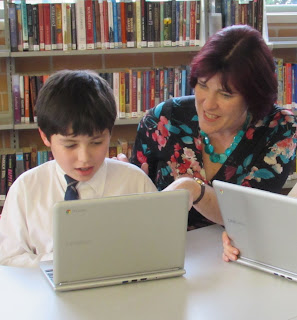The Horizon Report part 4 - Challenges impeding technology adoption

Significant Challenges Impeding Technology Adoption in K-12 Education See Part 1 , Part 2 , Part 3 , of this series on the Horizon Report 2015 Difficult Challenges: Those that we understand but for which solutions are elusive Personalizing Learning: The move toward personalised learning has been discussed for many years. Previously termed Student Centred Learning, there is much research discussing this concept for many years. 1990 , 1997 , 2000 . Another term that impacts on personalised learning is differentiation , where we make adjustments to cater for the needs of all abilities in the classroom. The evolution of personalised learning has been made more possible by technology. Personalised learning challenges the traditional educational paradigm. For this model to progress we need to modify teaching pedagogies from traditional methods of imparting knowledge to teachers facilitating learning. This will require cultural and attitudinal change from teachers...


